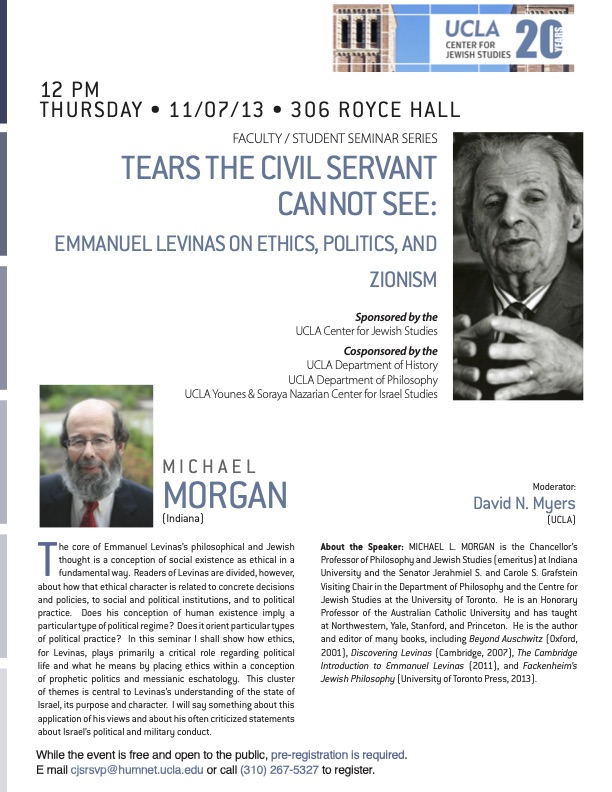
The core of Emmanuel Levinas’s philosophical and Jewish thought is a conception of social existence as ethical in a fundamental way. Readers of Levinas are divided, however, about how that ethical character is related to concrete decisions and policies, to social and political institutions, and to political practice. Does his conception of human existence imply a particular type of political regime? Does it orient particular types of political practice? In this seminar I shall show how ethics, for Levinas, plays primarily a critical role regarding political life and what he means by placing ethics within a conception of prophetic politics and messianic eschatology. This cluster of themes is central to Levinas’s understanding of the state of Israel, its purpose and character. I will say something about this application of his views and about his often criticized statements about Israel’s political and military conduct.
About the Speaker: MICHAEL L. MORGAN is the Chancellor’s Professor of Philosophy and Jewish Studies (emeritus) at Indiana University and the Senator Jerahmiel S. and Carole S. Grafstein Visiting Chair in the Department of Philosophy and the Centre for Jewish Studies at the University of Toronto. He is an Honorary Professor of the Australian Catholic University and has taught at Northwestern, Yale, Stanford, and Princeton. He is the author and editor of many books, including Beyond Auschwitz (Oxford, 2001), Discovering Levinas (Cambridge, 2007), The Cambridge Introduction to Emmanuel Levinas (2011), and Fackenheim’s Jewish Philosophy (University of Toronto Press, 2013).